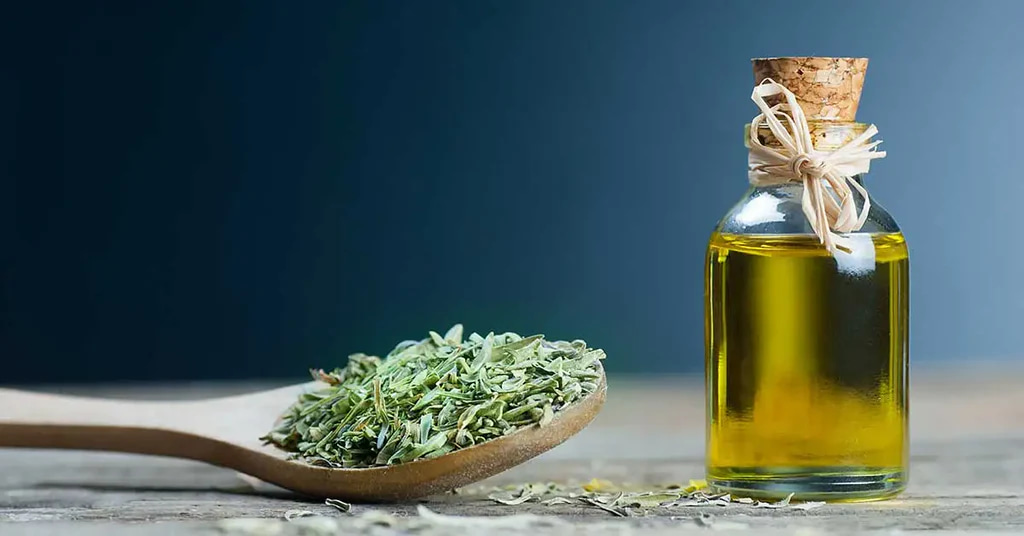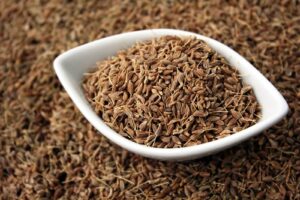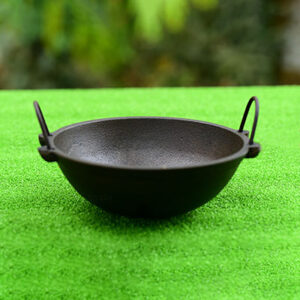Thyme is an aromatic herb that has been cherished for centuries, celebrated not only for its flavor but also for its remarkable health benefits. Known for its robust fragrance and earthy flavor, thyme is a staple in kitchens worldwide. This unassuming herb, with its tiny green leaves and woody stems, holds a wealth of nutritional benefits and medicinal properties that make it a versatile addition to both culinary and therapeutic practices.

Origins and History of Thyme
Thyme, scientifically known as Thymus vulgaris, belongs to the mint family, Lamiaceae, and is native to the Mediterranean region, where it has been used for thousands of years. This hardy herb has an ancient history, valued not only for its culinary and medicinal uses but also for its symbolic and ritualistic purposes.
Ancient Egypt: In Egypt, thyme was used in the embalming process. Its antibacterial and antifungal properties were believed to aid in preserving bodies.
Greece and Rome: Ancient Greeks burned thyme in temples as incense, believing it to be a source of courage and strength. The Romans, on the other hand, used thyme to purify their homes and added it to baths for its aromatic and purifying qualities.
Middle Ages: In medieval Europe, thyme was placed beneath pillows to aid in sleep and ward off nightmares. It was also thought to give soldiers courage, with sprigs of thyme often embroidered on clothing as a symbol of bravery.
Today, thyme is cultivated worldwide and continues to be prized for its culinary versatility and therapeutic value.
Nutritional Composition of Thyme
Thyme is a nutrient-dense herb, offering a range of vitamins, minerals, and bioactive compounds in small quantities. Although it’s typically used in small amounts, thyme still contributes significantly to a well-rounded diet.
Key Nutrients in Thyme
Vitamins:
Vitamin C: vital for healthy skin, the immunological system, and antioxidant defense.
Vitamin A: Supports vision, immune health, and skin maintenance.
Vitamin K: a must for healthy bones and blood coagulation.
B Vitamins (B1, B2, B3, B6): These vitamins are essential for energy metabolism and neurological health.
Minerals:
Calcium: apart from contributing to bone health, calcium is also crucial for nerve transmission, and muscle function.
Iron: Essential for the production of red blood cells and the movement of oxygen.
Magnesium: Promotes the creation of energy, muscle relaxation, and nerve function.
Manganese: Needed for bone development, metabolism, and antioxidant defense.
Bioactive Compounds:
Thymol: renowned for its antiseptic and antibacterial qualities.
Carvacrol: Offers anti-inflammatory and antibacterial benefits.
Rosmarinic Acid: An antioxidant that helps reduce inflammation and protect against free radicals.
Health Benefits of Thyme
Thanks to its potent blend of nutrients and bioactive compounds, thyme offers numerous health benefits:
Boosts Immunity
Thyme is rich in antioxidants, particularly vitamin C, which strengthens the immune system by helping to neutralize harmful free radicals and reducing oxidative stress. Thymol and carvacrol also contribute to immune support with their antimicrobial effects.
Supports Respiratory Health
Thyme has a long-standing reputation as a natural remedy for respiratory issues. Its essential oils, primarily thymol, act as a natural expectorant, helping to relieve coughs and congestion. Inhaling thyme vapor or consuming it as tea may alleviate symptoms of bronchitis, sore throat, and other respiratory conditions.
Enhances Digestion
Thyme stimulates the production of digestive enzymes, promoting efficient digestion and nutrient absorption. Its carminative qualities aid in the relief of indigestion, gas, and bloating.. Thyme tea or infusion is often recommended to support digestive health.
Anti-Inflammatory Effects
The rosmarinic acid and other antioxidants in thyme can reduce inflammation throughout the body, which is beneficial for individuals with conditions like arthritis. By lowering inflammation, thyme helps protect against chronic diseases.
Antibacterial and Antifungal Properties
Thyme’s essential oils, especially thymol and carvacrol, possess powerful antibacterial and antifungal properties. These compounds have been shown to inhibit the growth of harmful bacteria and fungi, making thyme effective in maintaining oral health and treating skin infections.
Promotes Heart Health
The antioxidants in thyme may protect the cardiovascular system by reducing oxidative stress and inflammation, while the potassium content helps regulate blood pressure. Additionally, thyme has been linked to improved cholesterol levels, supporting overall heart health.
Cognitive Benefits
Thyme contains compounds that may boost cognitive function and reduce the risk of age-related cognitive decline. Studies suggest that thymol and carvacrol may protect neurons, while antioxidants help combat neurodegeneration.
Potential Side Effects and Precautions
While thyme is generally safe for most people, there are some considerations to keep in mind:
Allergic Reactions: Some individuals may experience allergic reactions, especially those sensitive to herbs from the mint family.
Pregnancy and Breastfeeding: In large quantities, thyme might not be safe during pregnancy, as it could stimulate uterine contractions. It is important that you Consult a doctor if you are a lactating mother.
Blood-Clotting Issues: Due to its vitamin K content, thyme could interfere with blood-thinning medications, such as warfarin. Individuals on these medications should consume thyme in moderation.
Digestive Issues: While thyme can aid digestion, excessive intake may lead to stomach upset in some individuals.
Ways to Consume Thyme
Thyme can be used fresh, dried, or as an essential oil, making it a versatile herb with various applications.
Fresh Thyme: Fresh thyme can be added to dishes as a garnish or infused into soups, sauces, and marinades.
Dried Thyme: Dried thyme has a more concentrated flavor and is ideal for seasoning meats, vegetables, and stews.
Thyme Tea: Thyme tea can be brewed by steeping fresh or dried thyme leaves in hot water. It is commonly used for its respiratory and digestive benefits.
Thyme Oil: Thyme essential oil is potent and should be diluted before use. It can be applied topically (with a carrier oil) for skin issues or inhaled for respiratory benefits.
Thyme Recipes
To help you incorporate thyme into your daily routine, here are a couple of delicious and easy-to-make recipes.
Recipe 1: Lemon-Thyme Roasted Vegetables
Ingredients:
2 cups assorted vegetables (carrots, zucchini, bell peppers, etc.), chopped
1 tablespoon olive oil
2 teaspoons fresh thyme leaves (or 1 teaspoon dried thyme)
1 tablespoon lemon juice
Salt and pepper to taste
Instructions:
Preheat the oven to 400°F (200°C).
In a bowl, combine the vegetables, olive oil, thyme, lemon juice, salt, and pepper.
Roast the veggies for 20 to 25 minutes, or until they are soft, after spreading them out on a baking sheet.
If preferred, top with more thyme and serve warm.
Recipe 2: Honey-Thyme Tea
Ingredients:
1 cup boiling water
1-2 teaspoons fresh or dried thyme leaves
1 teaspoon honey
Lemon wedge (optional)
Instructions:
boil thyme leaves in boiling water for 5-7 minutes.
Strain the tea into a mug and add honey for sweetness.
Add a squeeze of lemon if desired. Enjoy warm for respiratory or digestive support.
Conclusion
Thyme is more than just a flavorful herb; it’s a powerhouse of health benefits that can enhance immunity, respiratory health, digestion, and more. By incorporating thyme into your diet, you can enjoy its distinct flavor while reaping the advantages it offers for wellness. Whether you choose to add it to your dishes, drink it as tea, or use it topically, thyme is a timeless herb with endless potential. Remember to use it in moderation, especially in medicinal quantities, and consult with a healthcare provider if you have any health concerns.
Try adding thyme to your culinary repertoire, and enjoy this ancient herb’s remarkable benefits for the body and mind!
Frequently Asked Questions
Q1: Can thyme help with skin conditions?
A: Yes, thyme’s antimicrobial and anti-inflammatory properties make it effective in treating acne and other skin conditions. Its essential oil, when diluted, can be applied topically to help reduce redness and prevent bacterial infections.
Q2: Is it safe to consume thyme essential oil?
A: Thyme essential oil is highly concentrated and should not be consumed internally without professional guidance. It’s safer to use the herb itself for culinary purposes.
Q3: How long can I store dried thyme?
A: Dried thyme can last up to a year if stored in an airtight container in a cool, dark place. The potency of its flavor may diminish over time.
Q4: Can thyme interact with medications?
A: Yes, thyme, especially due to its vitamin K content, may interact with blood-thinning medications. Consult a healthcare provider before consuming large amounts if you’re on medication.
Q5: How much thyme should I consume daily?
A: There is no strict daily requirement for thyme, but a few sprigs or a teaspoon of dried thyme per day is generally safe for culinary purposes.
Reference : http://www.mayoclinic.org







